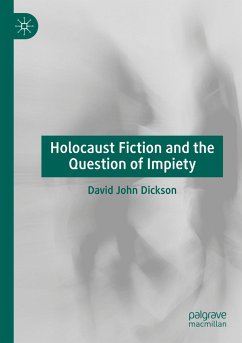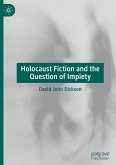This book discusses the issues underlying contemporary Holocaust fiction. Using Gillian Rose's theory of Holocaust piety, it argues that, rather than enhancing our understanding of the Holocaust, contemporary fiction has instead become overly focused on gratuitous representations of bodies in pain. The book begins by discussing the locations and imagery which have come to define our understanding of the Holocaust, before then highlighting how this gradual simplification has led to an increasing sense of emotional distance from the historical past. Holocaust fiction, the book argues, attempts to close this emotional and temporal distance by creating an emotional connection to bodies in pain. Using different concepts relating to embodied experience - from Sonia Kruks' notion of feeling-with to Alison Landsberg's prosthetic memory - the book analyses several key examples of Holocaust literature and film to establish whether fiction still possesses the capacity to approach the Holocaustimpiously.
Bitte wählen Sie Ihr Anliegen aus.
Rechnungen
Retourenschein anfordern
Bestellstatus
Storno








